RECORDED PROGRAMS
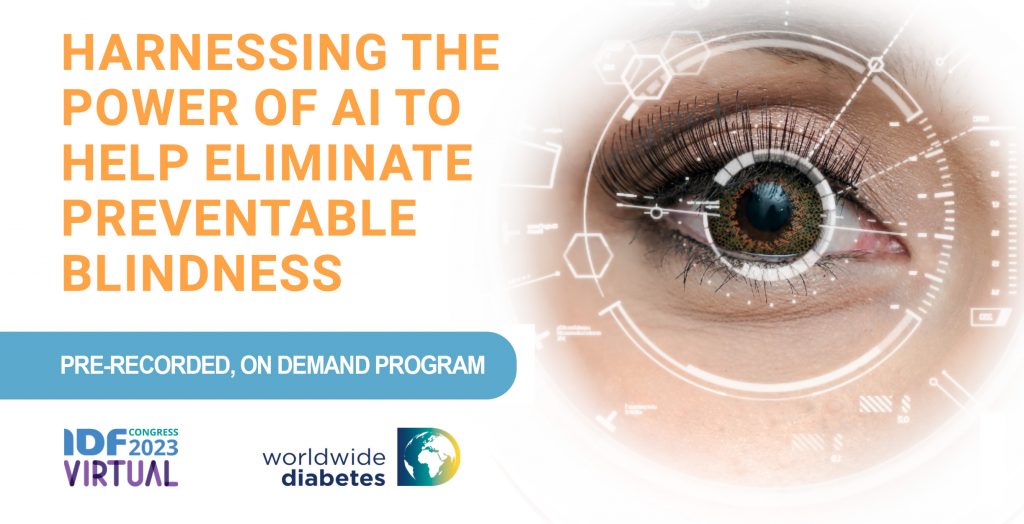
Diabetic retinopathy is a complication of diabetes, caused by damage to blood vessels in the eyes. It affects approximately 30 percent of persons with diabetes and is one of the most prevalent eye afflictions in existence today. Recently, significant advances in diabetic retinopathy screening have been made, with the use of artificial intelligence (AI) technology. This ground-breaking technology is noninvasive and extremely accurate, especially compared to visual methods. This satellite symposium will discuss the evolution of eye screening technology, the new science of AI screening, and provide health care professionals with data regarding AI screening and how it can impact clinical practice.
Click here to view the program.
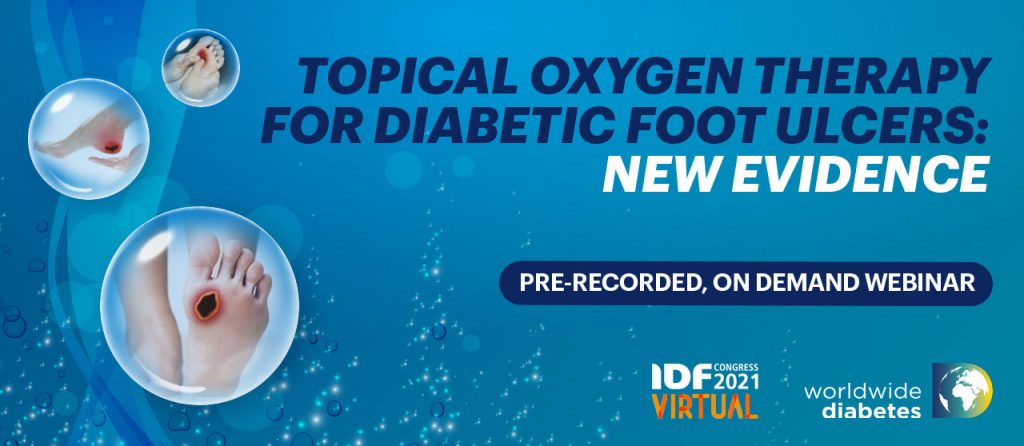
“Topical Oxygen Therapy for Diabetic Foot Ulcers: New Evidence,” a one-hour webinar, is available for on-demand viewing. This program was originally presented in partnership with the IDF Virtual Congress 2021 (Complications – COVID-19). Four internationally-recognized experts in the treatment of diabetic foot ulcers discuss the advancement in the treatment of diabetic foot ulcers and provide evidence for new therapies, including the role of topical oxygen therapy in obtaining optimal results for patients.
Click here to view the program.
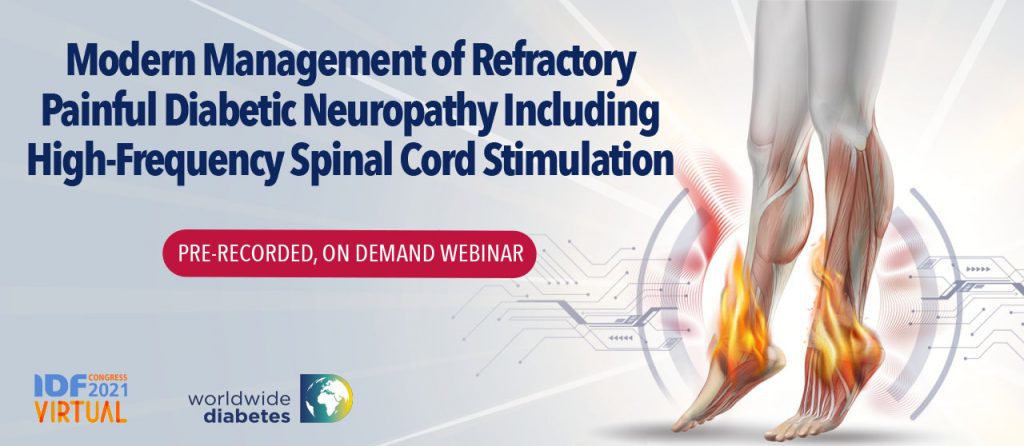
The virtual satellite symposium “Modern Management of Refractory Painful Diabetic Neuropathy Including High-Frequency Stimulation” was sponsored in partnership with the IDF Virtual Congress 2021 (Complications – COVID-19). Worldwide Diabetes is making it available here with open access. The webinar provides an overview on the challenges in the identification and management of diabetic neuropathy and reviews the evidence supporting the latest management strategies, including newer technologies, which are now part of the armamentarium health care professionals have available to treat their patients.
Click here to view the program.
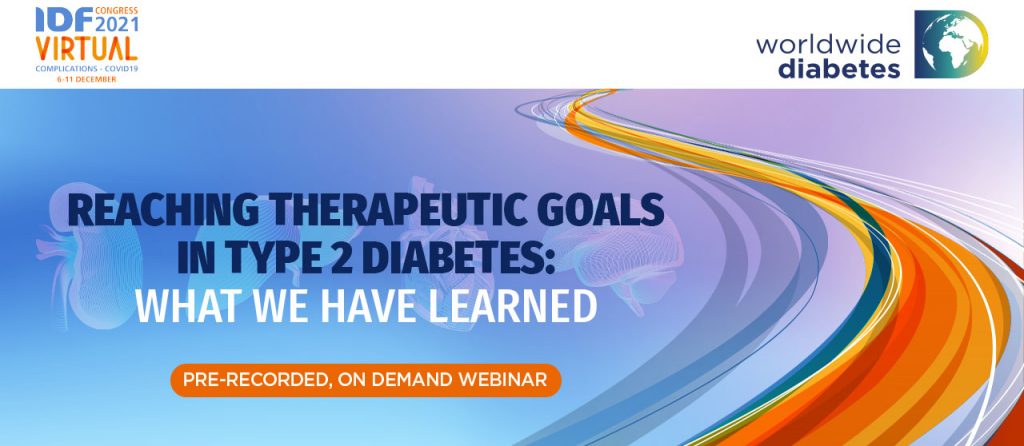
Worldwide Diabetes recently sponsored a virtual satellite symposium in partnership with IDF Virtual Congress 2021 (Complications – COVID-19), entitled “Reaching Therapeutic Goals in Type 2 Diabetes: What We Have Learned.” It is now available here with open access. The program includes three presentations that focus on the evolution of the use of insulin in managing type 2 diabetes, including what formulations are on the horizon.
Click here to view the program.

“Practical Applications in Managing Patients with CardioRenal Disease: New SGLT-2 Study Data” was a recent symposium produced by Worldwide CardioDiabetes and held in conjunction with the 76th Annual Brazilian Congress of Cardiology in November 2021. It is now available here for open, on-demand access. We encourage you to view the program in order to learn more about the results of recent studies and how to apply this knowledge to your daily practice.
Cardiorenal syndrome (CRS) in people with type 2 diabetes mellitus illustrates the bidirectional link between the heart and the kidneys, with acute or chronic dysfunction of one organ adversely impacting the function of the other. The cardiovascular and renoprotective benefits evidenced with sodium-glucose transporter-2 (SGLT-2) inhibitors make them a potential choice in the management of CRS.
Click here to view the program.

The virtual symposium “Reaching Therapeutic Goals in Type 2 Diabetes: New Options” was held in conjunction with the 55th Congress of the German Diabetes Society (DDG) on May 13, 2021. The 90-minute program featured Drs. Petra-Maria Schumm-Draeger (Munich) and Andrew J.M. Boulton (Manchester) as co-chairs, with vibrant presentations by Drs. Boulton, Brian Frier (Edinburgh), Paolo Pozzilli (Rome), and Oliver Schnell (Munich-Neuherberg). All presentations are available on demand for viewing per the links below. In addition, copies of the slides are available upon return of a short survey.
Click here to access the presentation videos.
 “Reaching Therapeutic Goals in Type 2 Diabetes” was held as a live webinar on January 27, 2021 and is now available on-demand. This webinar features prominent international speakers from England, India, and Kuwait, and a lively question and answer session. We invite you to participate in this virtual program as well as read the live webinar blog posts written by the speakers. The posts contain current information about proven approaches to preventing hypoglycemia, fixed dose combination treatments in managing type 2 diabetes, the impact of uncontrolled diabetes on overall cardiovascular health, the challenges in treating the global burden of diabetes, and how to optimize type 2 diabetes treatment results amidst the COVID-19 pandemic.
“Reaching Therapeutic Goals in Type 2 Diabetes” was held as a live webinar on January 27, 2021 and is now available on-demand. This webinar features prominent international speakers from England, India, and Kuwait, and a lively question and answer session. We invite you to participate in this virtual program as well as read the live webinar blog posts written by the speakers. The posts contain current information about proven approaches to preventing hypoglycemia, fixed dose combination treatments in managing type 2 diabetes, the impact of uncontrolled diabetes on overall cardiovascular health, the challenges in treating the global burden of diabetes, and how to optimize type 2 diabetes treatment results amidst the COVID-19 pandemic.
Click here to review the Recorded Program.
 Worldwide Diabetes held a live webinar on November 28, 2020 in conjunction with the 34th Congresso Brasileiro de Endocrinolgia e Metabologia (a virtual event). “Advancing Strategies in the Management of Type 2 Diabetes” featured speakers from Belgium, Brazil, England, and the United States and included presentations on preventing hypoglycemia, new uses of insulin, the psychological aspects of patient adherence, and how recent results of cardiovascular outcomes trials point to new treatment options. The webinar is now available on demand.
Worldwide Diabetes held a live webinar on November 28, 2020 in conjunction with the 34th Congresso Brasileiro de Endocrinolgia e Metabologia (a virtual event). “Advancing Strategies in the Management of Type 2 Diabetes” featured speakers from Belgium, Brazil, England, and the United States and included presentations on preventing hypoglycemia, new uses of insulin, the psychological aspects of patient adherence, and how recent results of cardiovascular outcomes trials point to new treatment options. The webinar is now available on demand.
Click here to view the program.
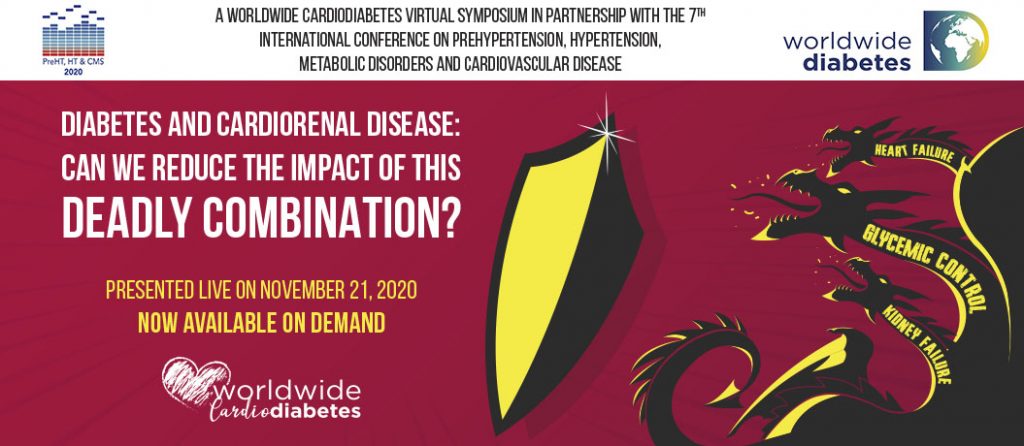 Worldwide Cardio Diabetes held a virtual symposium during the recent 7th International Conference on Prehypertension, Hypertension, Metabolic Disorders and Cardiovascular Disease and it is now available on demand. “Diabetes and CardioRenal Disease: Can We Reduce the Impact of this Deadly Combination” features presentations by Drs. Andrew Boulton, George Bakris, Martin Rutter, and Philip Home, delving into the important topics of the kidney and cardiovascular risk, treating heart failure, and improving outcomes in diabetes beyond glucose control therapies.
Worldwide Cardio Diabetes held a virtual symposium during the recent 7th International Conference on Prehypertension, Hypertension, Metabolic Disorders and Cardiovascular Disease and it is now available on demand. “Diabetes and CardioRenal Disease: Can We Reduce the Impact of this Deadly Combination” features presentations by Drs. Andrew Boulton, George Bakris, Martin Rutter, and Philip Home, delving into the important topics of the kidney and cardiovascular risk, treating heart failure, and improving outcomes in diabetes beyond glucose control therapies.
Click here to view the program.
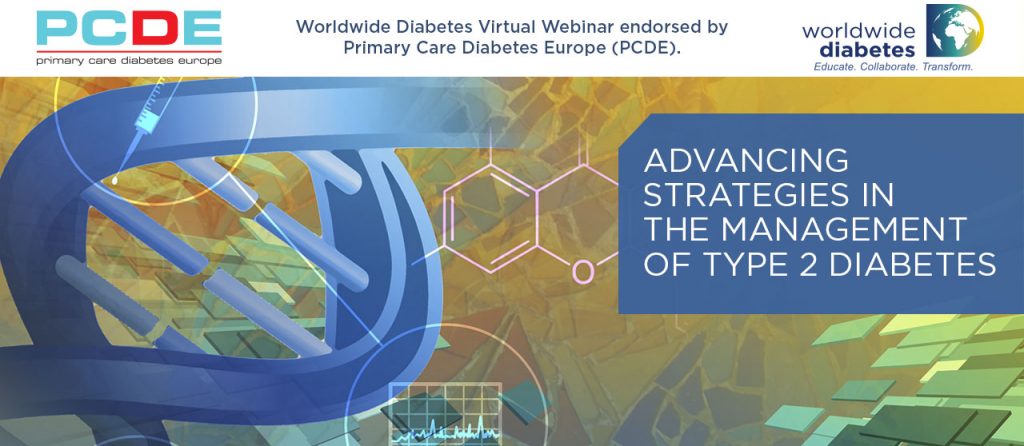
“Advancing Strategies in the Management of Type 2 Diabetes” was held as a live webinar on December 2, 2020. The speakers, all prominent leaders in the management of diabetes and cardiovascular complications, have contributed short articles that contain current information about preventing hypoglycemia today, what you need to know about managing clinical inertia and insulin intensification, and the latest treatment options for type 2 diabetes based on the results of cardiovascular outcomes trials.
Cardiovascular Outcome Trials Offer New Hope for Heart Failure Patients – With or Without Diabetes
Sanjay Rajagopalan, MD
Understanding Hypoglycemia
Simon Heller, MD
Insulin Intensification: Understanding the Why, How, and When
Paolo Pozzilli, MD
Hypoglycemia: Risks and Prevention
Simon Heller, MD
COVID-19 and DPP-4 Inhibitors
Paolo Pozzilli, MD
SGLT-2 Inhibitors and GLP-1 Analogues: Why Cardiologists Should be Prescribing These Drugs
Sanjay Rajagopalan, MD
